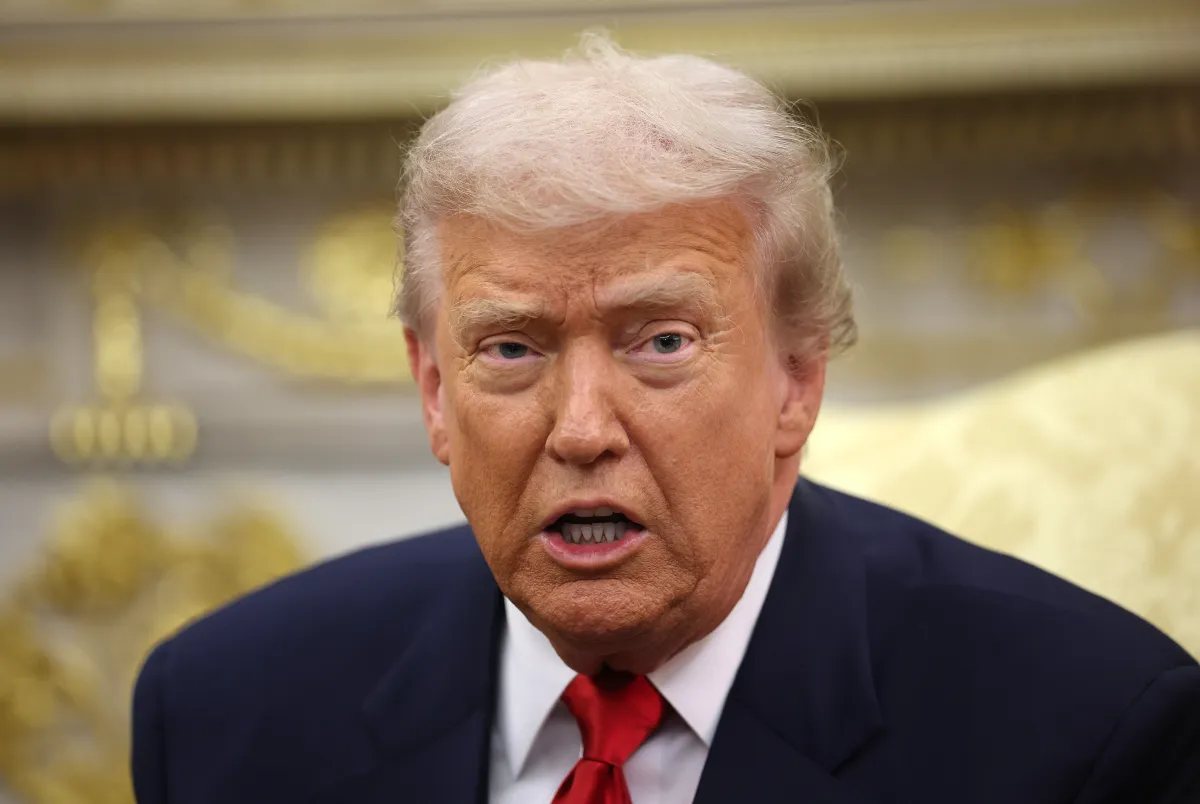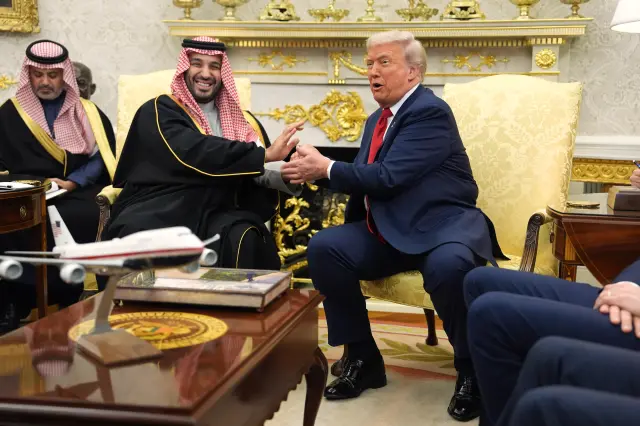
President Donald Trump has signaled a possible reopening of U.S.-Iran diplomacy, saying that Tehran wants to make a deal “very badly” and adding: “I am totally open to it.”
Speaking Tuesday at the White House alongside Saudi Crown Prince Mohammed bin Salman, an ally in the Middle East, Trump hinted that Washington and Tehran might resume discussions even after a turbulent summer marked by surprise Israeli attacks and U.S. airstrikes on Iranian nuclear sites. The remarks highlight the administration’s willingness to engage diplomatically while projecting cautious optimism.
Newsweek has contacted the U.S. State Department and Iran‘s Foreign Ministry for comment.
Why It Matters
Trump’s remarks come amid global concern over Iran’s nuclear ambitions, regional security, and the risk of a wider conflict that could disrupt energy markets and international trade. A renewed U.S.-Iran diplomatic effort could ease tensions in the Middle East, reduce the threat of escalation, and stabilize global oil prices, supply chains, and investor confidence.
June’s 12-day war between Iran with Israel, which ended with U.S. strikes on Iranian nuclear sites, highlighted how quickly regional tensions can ripple worldwide. Disruptions to Persian Gulf airspace and markets illustrated the vulnerability of the global economy. Successful negotiations could also strengthen alliances, reassure international partners, and help avert a crisis with consequences far beyond the region.
What to Know
Trump emphasized that the U.S. was beginning a renewed diplomatic process with Tehran, highlighting that both sides may still be open to engagement. He said: “It would be nice to have a deal with Iran. And we could have done it before the war, but that didn’t work out. And something will happen there, I think.”
The remarks appeared to reflect the administration’s position that, despite the collapse of earlier negotiations and the turbulence of the June conflict, there remained a potential path toward an agreement if Washington and Tehran continued discussions.
Iran has not yet publicly responded to Trump’s comments.
Collapse of Negotiations
The U.S. and Iran had been engaged in talks earlier this year under a 60-day deadline set by Washington. When no agreement emerged by June 12, momentum stalled. The next day, Israel launched a surprise campaign targeting Iranian military sites, killing several senior officials and effectively ending any immediate path back to diplomacy.
Nine days later, the U.S. struck three Iranian nuclear facilities in Fordow, Natanz and Isfahan. Trump defended the operation, saying: “We did that on behalf of everybody, and the outcome was extraordinary because we have the best pilots, the best equipment, the best planes, the best everything.”
In response, Iran launched ballistic missiles and drones at Israel and fired missiles at U.S. forces at Al Udeid Air Base in Qatar.

Saudi Ready to Help
After outlining U.S. actions and the broader regional situation, Trump turned to Saudi Arabia’s role in facilitating diplomacy. Addressing the crown prince, he said: “We put you in a very good position.”
The Saudi leader, widely known by the acronym MBS, emphasized Riyadh’s readiness to help the U.S. and Iran reach a deal that could also benefit the wider Middle East. “I will be working closely together on the issue, and we will do our best to help to reach a deal between America and Iran,” he said.
Earlier, Saudi Arabia’s official news agency, SPA, reported that MBS had received a handwritten letter addressed to him from Iranian President Masoud Pezeshkian before his trip to Washington. No details were available about its content.
What People Are Saying
U.S. President Donald Trump: “Iran does want to make a deal. I think they very badly want to make a deal. I am totally open to it, and we’re talking to them, and we start a process.”
Saudi Arabia’s Crown Prince Mohammed bin Salman:“We believe it’s good for Iran’s future to have a good deal that that would satisfy the region and the world. So we will do our best to see that they happen.”
What Happens Next
Washington is expected to explore renewed diplomatic avenues as regional governments assess whether the post-conflict landscape can support meaningful negotiations between the U.S. and Iran.
Trump’s efforts to facilitate a deal, alongside Saudi Arabia’s support, may also reflect his broader ambition to position himself as a peacemaker on the world stage, a role he has previously suggested could earn him a Nobel Peace Prize.
